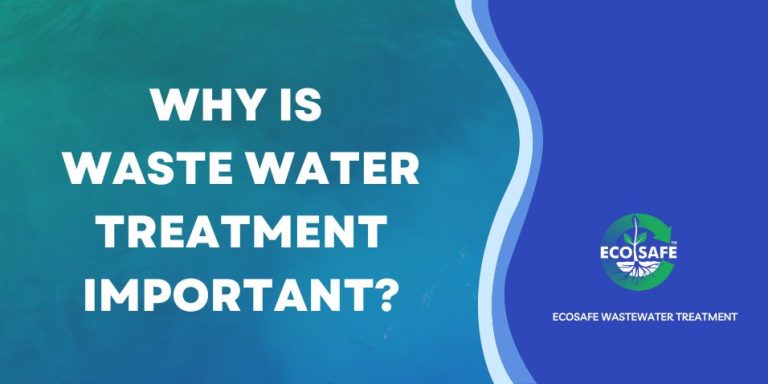How Reclaim Waste can Save You Time, Stress, and Money.
Table of ContentsThe Greatest Guide To Reclaim WasteReclaim Waste for DummiesHow Reclaim Waste can Save You Time, Stress, and Money.9 Simple Techniques For Reclaim WasteReclaim Waste Fundamentals Explained
Domestic sewer waste refers to the waste and products from a residential septic container. The proper administration and disposal of residential sewer waste require liquid waste to be moved to a sewer therapy plant where the correct approaches and equipment are used to purify and dispose of waste.
Business waste frequently includes potential threats, such as combustible products or a mix of fluid and solid waste products, and requires a more sophisticated and detailed disposal procedure. The disposal of commercial waste commonly involves the filtration of waste prior to transport to guarantee risk-free and correct disposal. Hazardous waste is created from by-products and runoff of commercial processes and production.
This sort of waste can not make use of the exact same sewage management transportation or processes as septic or business fluids. The hazardous waste administration process requires the examination and screening of liquid waste before it undergoes the disposal procedure (liquid waste disposal). Runoff waste is the fluid waste that originates from overflow and excess stormwater in extremely inhabited areas or cities
Drainage waste can create contamination and flooding if not managed correctly. Find out more regarding sewage system cleansing and waste monitoring. Making sure correct waste administration can stop catastrophes and lower ecological injury. Both people in residential setups and specialists in industrial or manufacturing industries can take advantage of comprehending the procedures and regulations of liquid waste monitoring.
Our Reclaim Waste Ideas
Call PROS Solutions today to discover about our waste management and disposal solutions and the correct ways to look after the liquid waste you create.
(https://reclaim-waste-f27e88.webflow.io/)This so-called 'wastewater' is not only a vital source but, after therapy, will certainly be launched to our land, waterways or the ocean. Used water from commodes, showers, baths, kitchen area sinks, washings and commercial processes is known as wastewater.

water used to cool machinery or clean plant and tools). Stormwater, a type of wastewater, is overflow that moves from agricultural and urban locations such as roof coverings, parks, yards, roads, paths and rain gutters right into stormwater drains, after rainfall. Stormwater streams untreated directly to local creeks or rivers, eventually reaching the ocean.
Reclaim Waste Things To Know Before You Get This
In Queensland, most wastewater is dealt with at sewer treatment plants. Wastewater is transferred from domestic or commercial sites via a system of sewers and pump stations, referred to as sewerage reticulation, to a sewage treatment plant. Neighborhood governments build, maintain and operate most sewage therapy plants. Operators are accredited under the Environmental Management Act 1994 to discharge cured wastewater at an acceptable ecological criterion right into rivers.
The Department of Natural Resources encourages neighborhood federal governments regarding managing, operating and maintaining sewerage systems and therapy plants. In unsewered locations, regional governments may require homeowners to mount individual or home sewage treatment systems to treat domestic wastewater from bathrooms, kitchens, shower rooms and washings. The Department of Natural Resources authorises using family systems when they are confirmed to be reliable.
Most stormwater receives no therapy. In some new subdivisions, therapy of some Related Site stormwater to get rid of litter, sand and gravel has begun making use of gross contaminant catches. Wastewater therapy occurs in four stages: Removes strong matter. Larger solids, such as plastics and other objects wrongly discharged to sewage systems, are gotten rid of when wastewater is gone through displays.
Wastewater after that flows into large storage tanks where solids work out and are removed as sludge. Oil and residue are skimmed from the surface. Uses tiny living organisms understands as micro-organisms to break down and get rid of continuing to be liquified wastes and fine fragments. Micro-organisms and wastes are integrated in the sludge. Gets rid of nitrogen and phosphorus nutrients that could trigger algal blossoms in our rivers and intimidate water life.
Reclaim Waste Things To Know Before You Buy
Nutrient elimination is not available at all sewer treatment plants due to the fact that it needs costly specialised tools. Clear liquid effluent produced after therapy might still have disease-causing micro-organisms - liquid waste disposal melbourne.

This usually suggests wastewater has to be treated or contaminants removed before it can be released to waterways. The majority of wastewater flows into the sewage system. Under the Act, regional governments carry out approvals and permits for environmentally appropriate tasks (ERAs) including wastewater launches that may have a regional effect. The department provides authorizations and licences to Periods involving wastewater releases that might have a local or statewide influence.
Things about Reclaim Waste
Or else, samples are taken for laboratory evaluation. Typically several tests are required to develop the degrees of each of the different pollutants such as oils, heavy metals and pesticides in water. Tracking supplies valid details concerning water quality and can confirm that licence conditions are being satisfied. The info acquired with tracking supplies the basis for making water high quality choices.